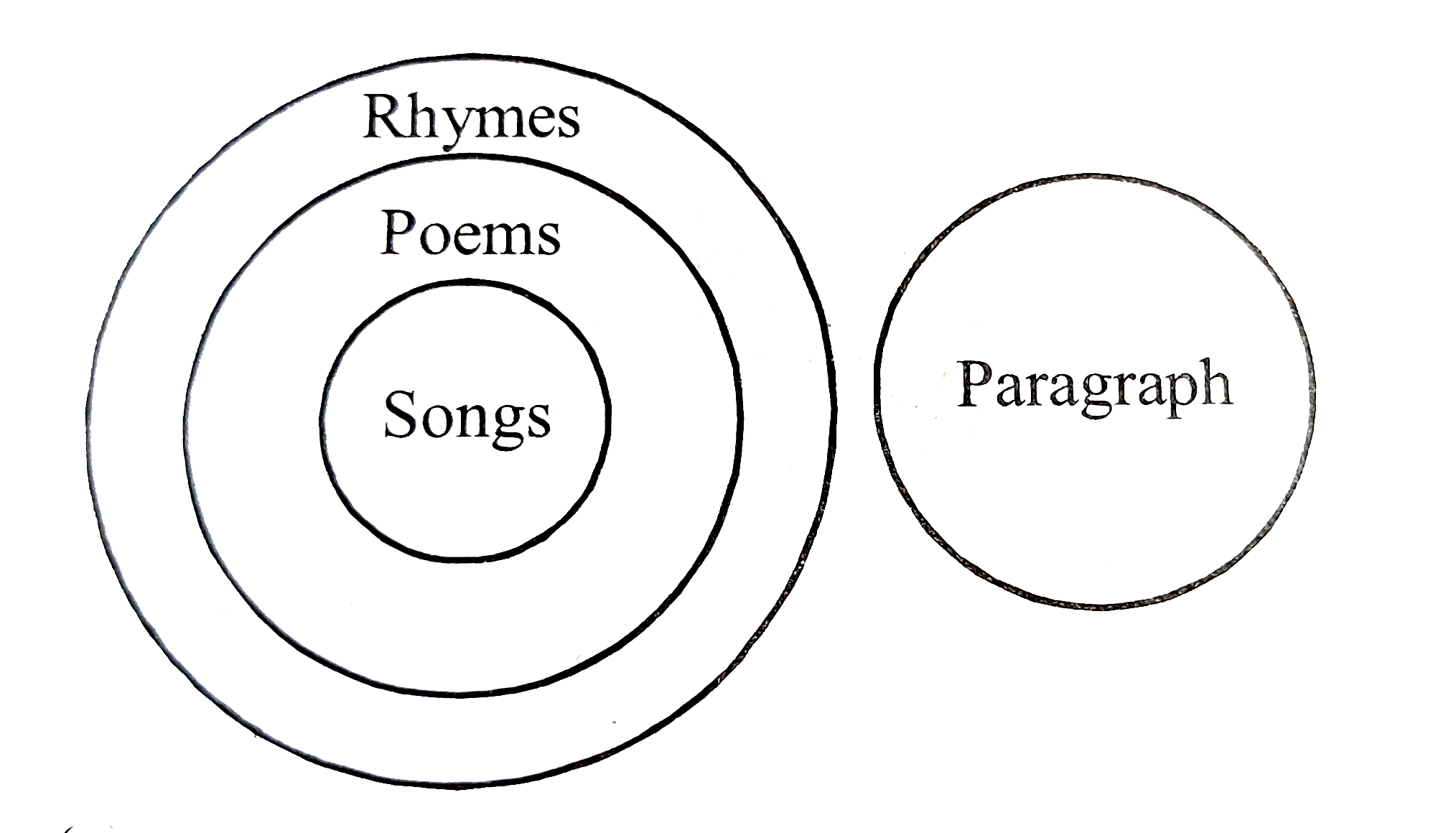Statements: All songs are poems
All poems are rhymes
No rhymes is a paragraph.
Conclusions: I. No song is a paragraph
II.No poem is a paragraph
If only conclusion I follows
If only conclusion II follows
If either conclusion I or conclusion II follows
if both I and II follow
The correct Answer is:D

conclusion I -True
II -True
Topper's Solved these Questions
Similar Questions
In the question below, there are three statements followed by two conclusions numbered I and II. You have to take the given statements to be true even if they seem to be at variance with commonly known facts and then decide which of the given conclusions logically follow(s) from the given statements. Give answer
1) if only conclusion I follows
2) if only conclusion II follows
3) if either I or II follows
4) if neither I nor II follows
5) if both I and II follow
Statements: All mobiles are phones .
All phones are computers .
All computers are scanners.
Conclusions: I. All mobiles are computers .
II.All phones are scanners.
View SolutionDirection: In the following question below some statements are given followed by some conclusions. Taking the given statements to be true even if they seem to be at variance from commonly known facts, read all the conclusions and then decide which of the given conclusions logically follows the given statements.
Statements:
All songs are poems.
All music are poems.
Only a few poems are sound.
Conclusions:
Some music are songs.
All poems are songs.
View Solution
Knowledge Check
In each of the questions below. Two/three statements are given followed by conclusions/group of conclusions numbered and II. You have to assume all the statements to be true even if they seem to be at variance from the commonly known facts and then decide which of the given two conclusions logically follows from the information given in the statements.
Statements
All songs are poems.
All poems are rhymes.
No rhyme is a paragraph.
Conclusions
I. No song is a pragraph.
II. No poem is a pragraph.Aif only Conclusion I followsBif only Conclusion II followsCit either I or II followsDNone of the aboveStatements: All songs are poems
All poems are rhymes
No rhymes is a paragraph.
Conclusions : I. All rhymes are poems
II. All songs are rhymesAIf only conclusion I followsBIf only conclusion II followsCIf either conclusion I or conclusion II followsDif neither conclusion I nor conclusion II followsIn each of the questions below. Two/three statements are given followed by conclusions/group of conclusions numbered and II. You have to assume all the statements to be true even if they seem to be at variance from the commonly known facts and then decide which of the given two conclusions logically follows from the information given in the statements.
Statements
All songs are poems.
All poems are rhymes.
No rhyme is a paragraph.
Conclusions I. All rhymes are poems.
II. All songs are rhymes.Aif only Conclusion I followsBif only Conclusion II followsCit either I or II followsDif neither I nor II follows
Statements:- I. All books are novels. II. Some novels are poems.
Conclusions:- I. Some books are poems. II. Some poems are novels.
View SolutionStatements: All books are pens.
All pens are boxes.
Conclusions: I All books are boxes.
II. All pens are books.
View SolutionStatements:
All diamonds are stones
All stones are gems
Conclusions:
I. All gems are stones
II . All diamonds are gems
View SolutionThree statements are given, followed by three conclusions numbered I, II and III. Assuming the statements to be true, even if they seem to be at variance with commonly known facts, decide which of the conclusions logically follow(s) from the statements.
Statement: Some essay are poems.
Some poems are directors.
All directors are singers.
Conclusions:
I. Some directors are poems.
II. Some singers are essays.
III. Some singers are poems.
View SolutionStatements: All books are pencIIs.
All penciIs are flowers.
Conclusions: I. All books are flowers.
II. Some penciIs are not books.
View Solution
